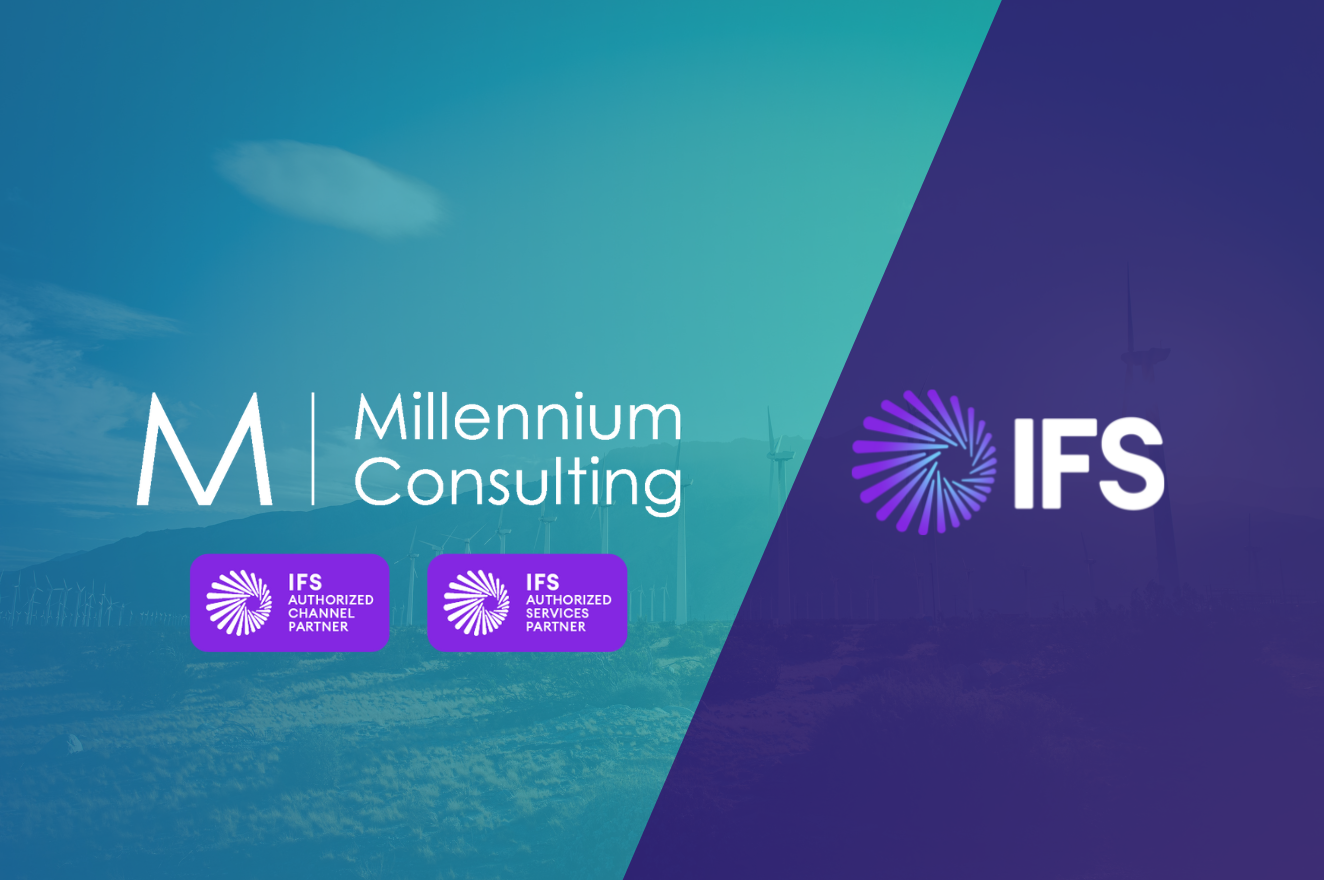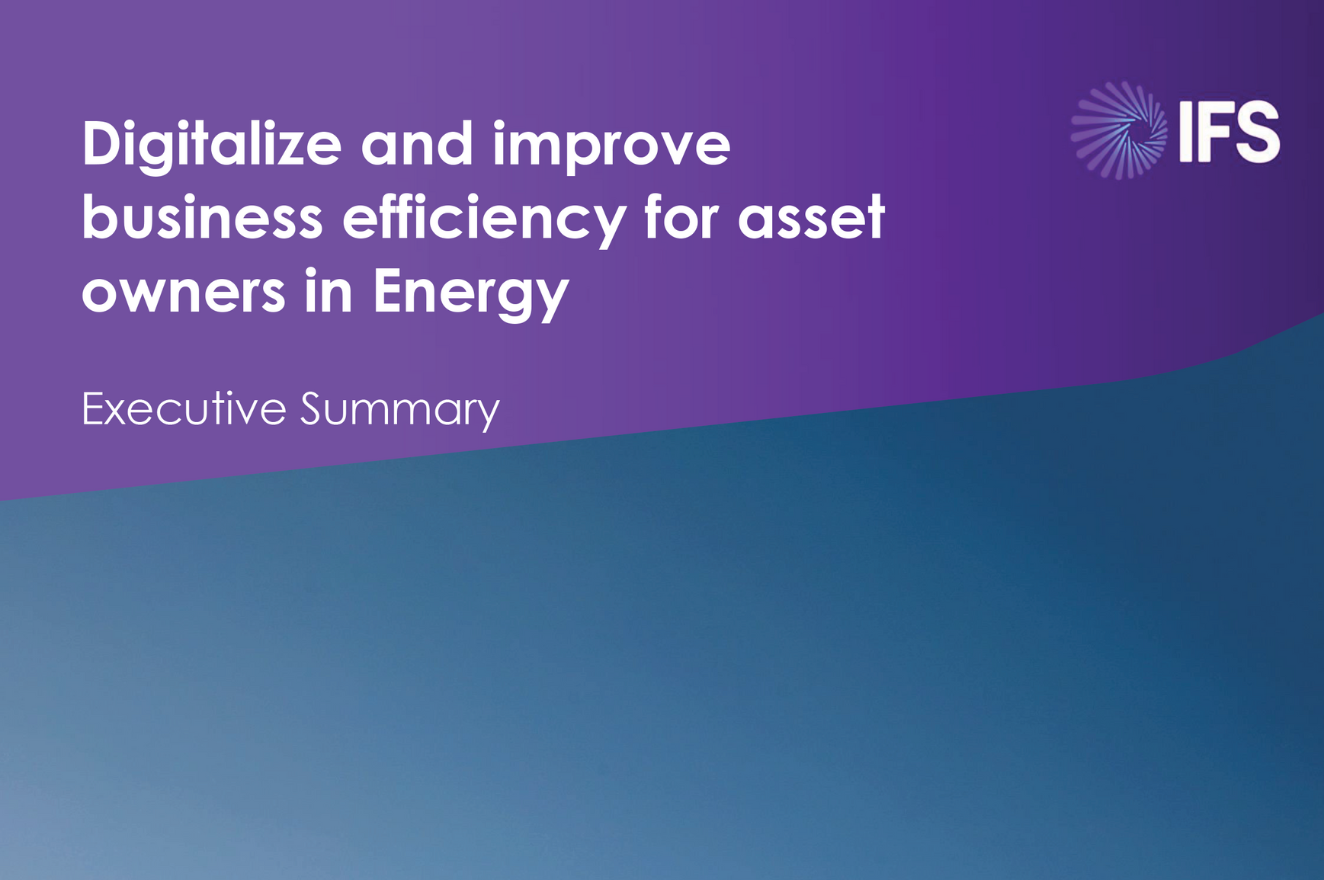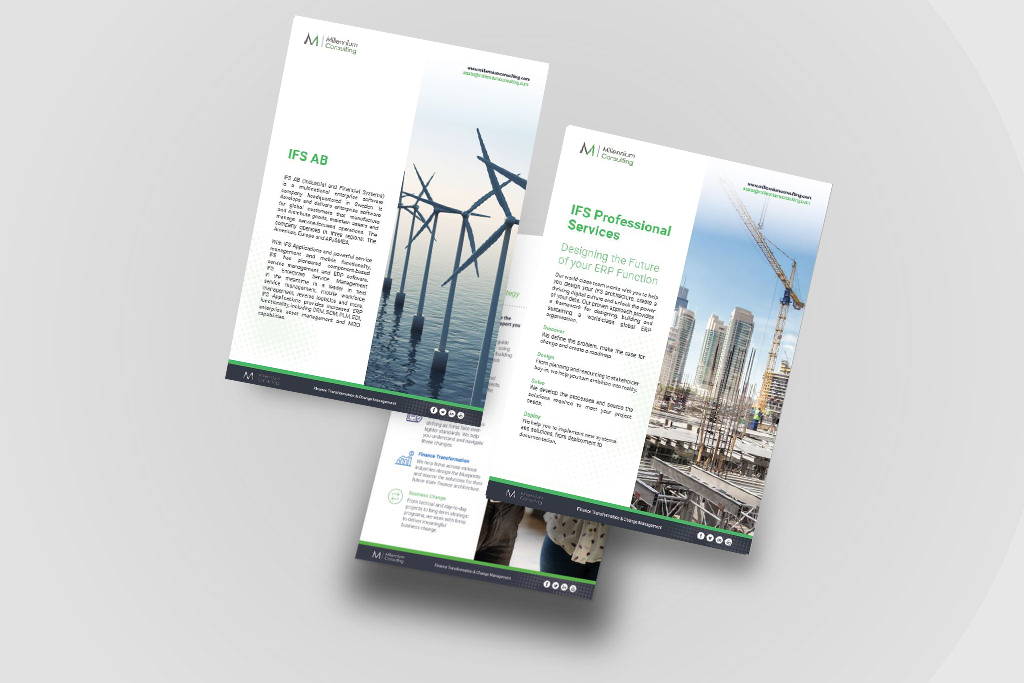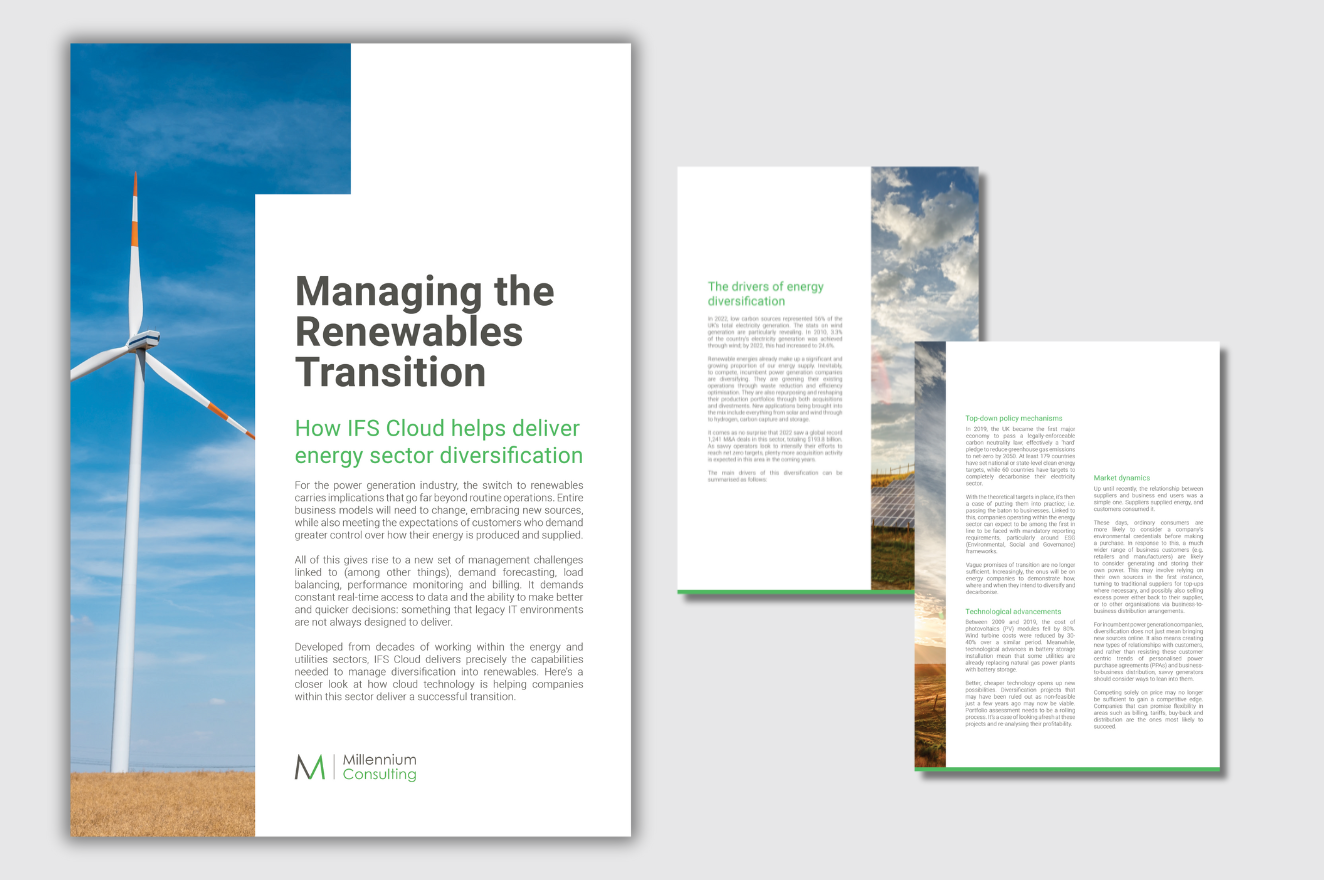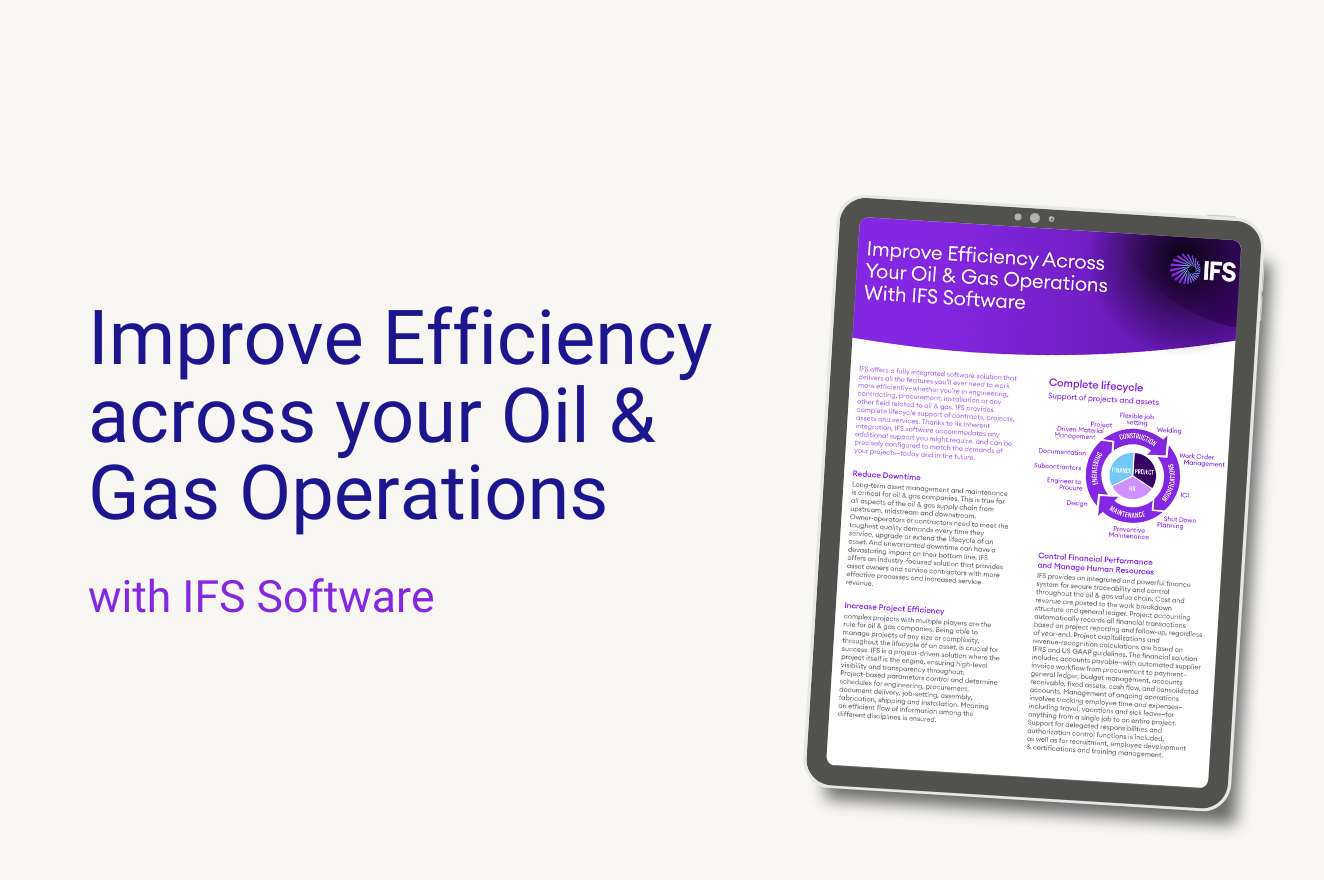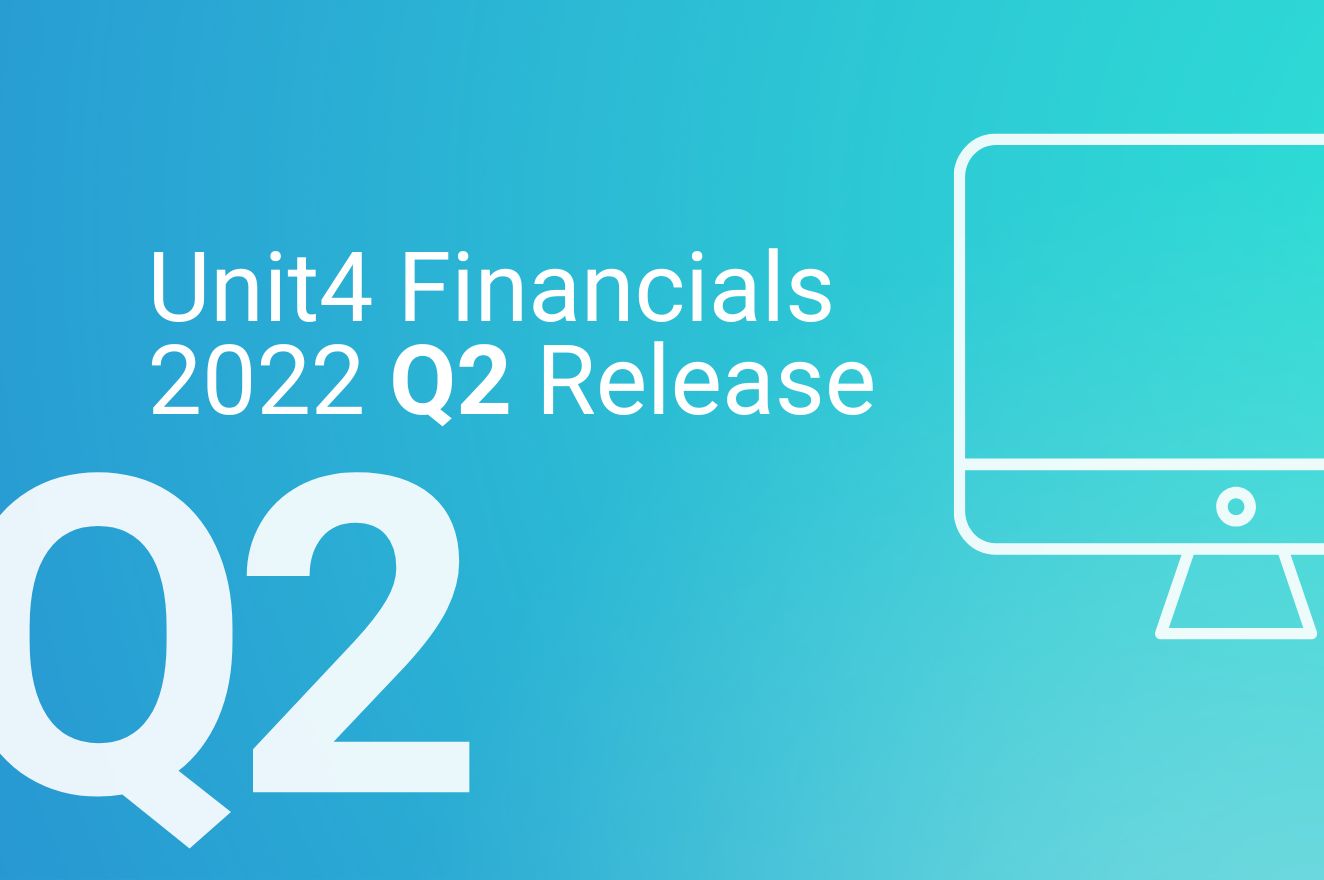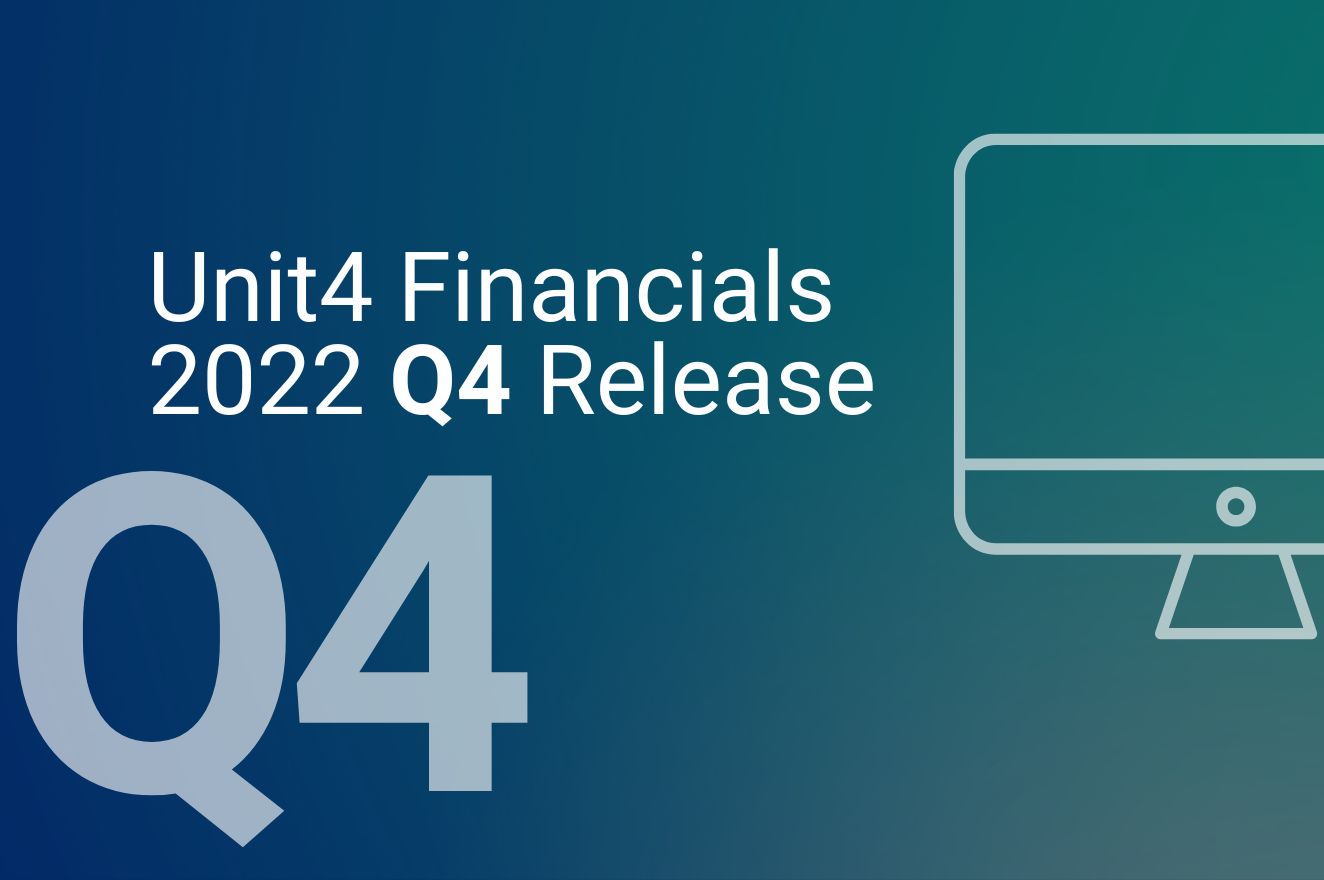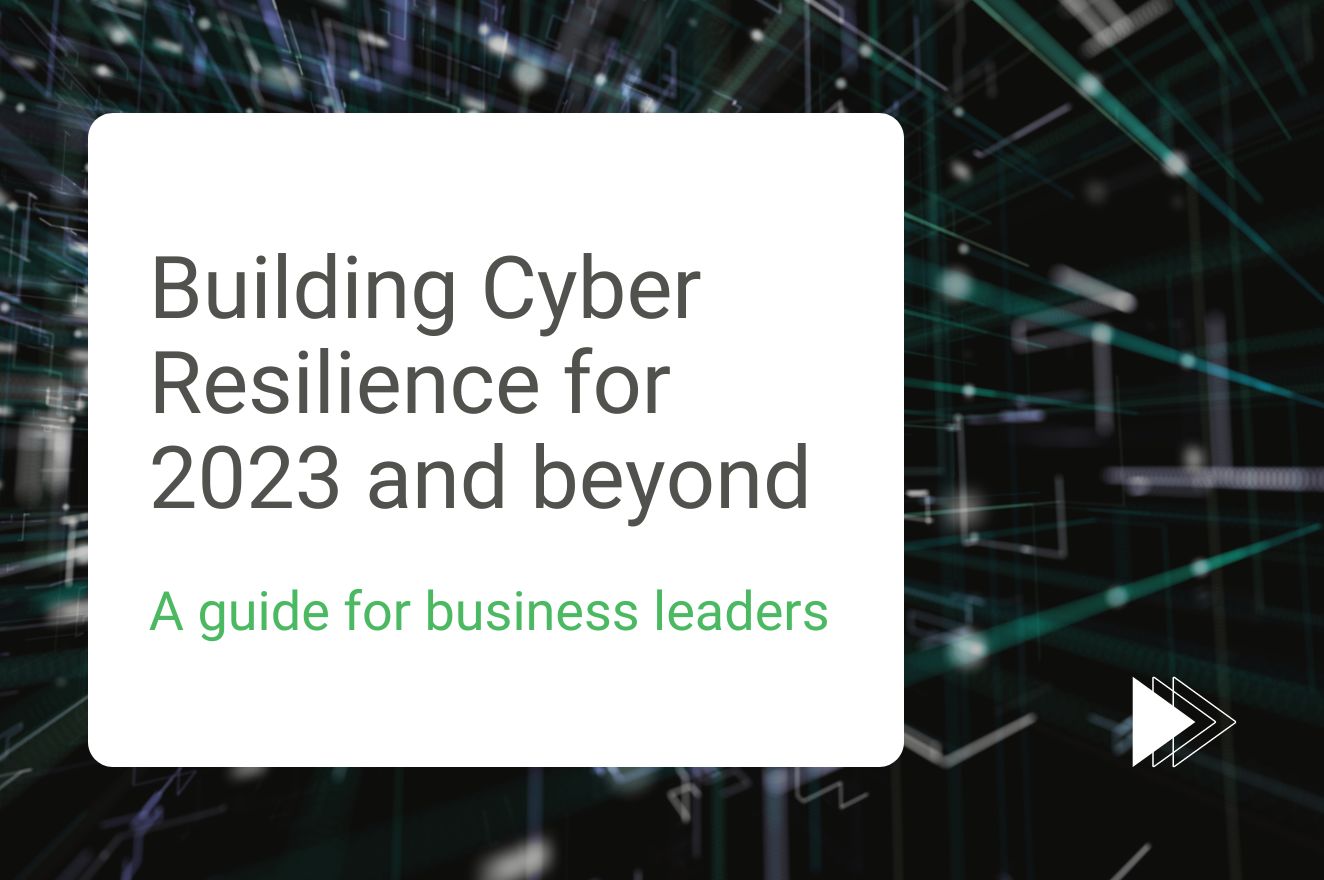Millennium Consulting named Service Delivery Partner of the Year by Unit4
January 2023
We are delighted to announce that we have been awarded ‘Service Delivery Partner of the Year' by Unit4
Millennium received the award during the Unit4 XKO partner conference in Lisbon for its delivery and service quality on Unit4 Financials by Coda implementations and projects.
"We are all delighted to be awarded the prestigious title of ‘Service Delivery Partner of the Year' by Unit4. This award highlights excellence across all Unit4 products and serves as recognition of all the skilled and innovative colleagues at Millennium. Huge congratulations to the whole team for your continuous drive toward excellence in all aspects of the work you do."
— Jeremy Lucas, COO
This acknowledgement follows the recognition received in the 2022 Raven Intelligence Guide, with Millennium recognised as the top Unit4 Financials by Coda Partner. This annual report showcases the recommended Unit4 implementation partners based on customer reviews.
Millennium Consulting is committed to being an Elite Partner for Unit4, holding Elite partner status since the global partner program launched in June 2020.
Why choose Millennium for Unit4 Financials?
We are an Elite Unit4 Partner with more than 27 years of experience working with Unit4 Financials. That means we have the knowledge and experience to design, implement and support the right Unit4 Financials solution for your business.
An introduction to Digital Invoicing
Published January 2023
In December 2022, the EU Commission published its proposed new VAT framework, “VAT in the Digital Age”. If adopted by member states, all intra-EU cross-border b2b sales will be subject to mandatory e-invoicing and reporting, with phase-in possibly commencing as early as 2024.
This is part of a wider international trend: governments and tax authorities increasingly view digital invoicing (aka e-invoicing) as a way to close the tax gap caused by fraud and error, hence its steady but inevitable roll-out. Here’s a closer look at digital invoicing, and how businesses – especially companies involved in transactions in multiple territories – can become ‘e-invoicing ready’.
How does digital invoicing work?
True digital invoicing is a system whereby invoices are issued, transmitted, received, processed and stored automatically in a structured format.
As an illustration of how this works, let’s say Company A is selling a batch of supplies to Company B:
- When the transaction is agreed, Company A’s AR software automatically generates an e-invoice and transmits this to the tax authorities who then send the invoice to Company B.
- On receipt, the invoice is logged automatically by Company B’s AP system. The invoice is also cross-referenced automatically against the original purchase order or other procurement documents.
- Assuming there is no discrepancy between the purchase order and the invoice, payment can be processed automatically.
The right digital invoicing solution ensures that all relevant information is captured and transmitted to the tax authority when the e-invoice is generated.
Structured Data Transmission (SDT)
Digital invoicing depends on data being shared between different applications and systems. At different stages, the relevant information is read, captured, extracted and acted upon by those applications (notably, the buyer and seller’s accounts solutions), without the need for human input.
For this to happen, it is not sufficient to email a Word version or standard PDF of your invoice. This is where Structured Data Transmission (SDT) comes in: i.e. the transmission of data between systems in a standardised, machine-readable format.
XML (Extensible Markup Language) is the most versatile SDT format. Crucially, it allows programs to read and extract information from invoice fields. It’s efficient, secure and very widely used. This helps avoid any interoperability issues when you need to exchange details with other parties.
The advantages
In the UK, digital invoicing is already mandatory for certain public sector transactions. With the steady march of HMRC’s ‘Making Tax Digital’ initiative, it is probably only a matter of time until it becomes mandatory across a much wider range of contracts, including B2B. We are also witnessing a gradual expansion of digital invoicing mandates across other key markets, including Italy, France, Spain and Germany.
Building up your e-invoicing capabilities at this stage helps keep you one step ahead of these requirements. Beyond compliance, there are some very clear business advantages to digital invoicing adoption, including a significantly reduced administrative burden, lower processing costs, faster payments, better control of cash flow, and stronger partner relationships. Discover more about the business advantages of digital invoicing here.
The risks
We know that mandatory digital invoicing is on its way, but the precise timetables for roll-out are still very much up in the air. In Europe, for instance, The EU Commission seems keen to bring about a certain level of harmonisation between Member States, but many of the tax authorities within those states already have their own initiatives underway, and we could very likely see a mish-mash of different systems and reporting procedures in play over the coming years.
The biggest risk – especially for businesses involved in cross-border transactions – is of sleepwalking into non-compliance, possibly opening the door to investigations, sanctions and reputational damage. Finance teams need to keep a close eye on the jurisdictions where the business is active to ensure invoicing and reporting procedures are aligned with any upcoming changes.
Risk mitigation involves building up an e-invoicing strategy that takes into account the markets in which you operate. Alongside this, you need to consider the expectations and preferences of your commercial partners. Crucially, your system of choice should make it possible to send and receive invoices in various formats, share information using multiple distribution channels and systems and maintain full compliance with the latest regulations, as and when those regulations come into force.
Introducing Millennium Digital Invoicing (MDI)
Millennium Consulting has developed an e-invoicing framework designed to meet your digital invoicing needs, now and into the future.
Millennium Digital Invoicing (MDI) integrates seamlessly into your existing financial processes. It offers the flexibility you need to adapt to evolving e-invoicing requirements. It is also designed to enable you to tap into the full business benefits of streamlined, integrated digital invoicing, offering the potential of optimised business processes and stronger relationships with commercial partners.
To get your digital invoicing strategy on track, get in touch for an MDI demo.
Why is IFS the Enterprise Software platform of choice for Energy and Utility companies?
December 2022
Millennium Consulting has recently partnered with global cloud enterprise software company, IFS AB. A leader in the fields of ERP (Enterprise Resource Planning), EAM (Enterprise Asset Management) and Service Management, IFS has been serving the needs of energy and utilities companies since its inception.
In Oil & Gas, Power Generation, Transmission & Distribution and Water, the need for best-of-breed cloud enterprise software has never been greater. This is a sector where sustainability requirements and rapidly shifting customer expectations are shaping the future. As a consequence, companies are increasingly having to rethink their business models, diversify their offerings and get a tighter grip on asset management. Here’s a closer look at how IFS is equipped to deliver these capabilities…
An integrated platform, delivering a holistic view
Energy companies often comprise a complex portfolio of assets scattered across multiple locations. The drive to net zero undoubtedly represents a huge strategy shift. This coincides with a host of pressing operational challenges, including the need to manage and reduce operational costs, while also ensuring the reliability and safety of existing assets.
In short, organisations within this sector have complex requirements; and those requirements are simply not going to be met by generic, one-size-fits-all planning and enterprise management solutions. Covering areas such as project management, plant maintenance, supply chain and human capital management (to name just a few), the components of IFS are hardwired to meet this sector’s specific needs. In fact, the company has been meeting the needs of this sector right from its earliest days.
Crucially from a strategic point of view, these capabilities are offered on an integrated, composable platform. Your in-the-field leaders responsible for projects, assets and service levels certainly get the benefit of best-in-breed operational management tools. But alongside this, CFOs and other board-level executives get an up-to-date, joined-up picture of performance. In terms of strategy, this puts you in a much stronger position to highlight efficiency opportunities, reduce costs and optimise processes.
The three core offerings delivered by IFS – ERP, EAM and Service Management – complement each other, enabling businesses to consolidate operations, support growth initiatives and improve customer service. This speaks directly to some of the biggest challenges currently faced by the energy sector. These are just a few illustrations of how the capabilities offered by IFS can make a difference to your organisation:
- Use IFS to adopt an end-to-end solution to support the entire lifecycle of assets, from feasibility assessments to operation and maintenance.
- Modernise field operations and get a single view of the truth across asset management, technician schedules, customer systems and outage use cases. IFS’ acquisition of Clevest in 2020 enables the company to deliver a combined enterprise asset management (EAM) and Mobile Workforce Management MWM offering: something that has helped IFS earn a place in the Gartner Market Guide for Mobile Workforce Management Software for Utilities for the eighth year in a row.
- For onboarding new assets (e.g. when diversifying your portfolio through renewables initiatives), use IFS Projects to manage the complete project lifecycle.
- What are your options for reskilling and/or redeploying existing employees to reflect changes in your operating model? Use the IFS Human Capital Management components to analyse resources and ensure alignment with organisational strategy.
While current geopolitical crises have temporarily curtailed contract-switching activity, we can, of course, expect it to return with a vengeance once supply issues have settled down.
In both utilities and power distribution, customers demand reliable and exceptional service at their fingertips. In practical terms, this involves a timely response to queries, and technicians turning up when they are supposed to. This is another key area where the integrated architecture incorporating the Internet of Things (IOT) and energy/utilities-specific capabilities of IFS prove particularly valuable. Workforce, asset management and customer service components exist on a single platform, with the ability to communicate with each other. There’s an opportunity here to ensure complete alignment of all stages of each service engagement, from customer fault logging to ultimate resolution: a huge boost in enabling enterprises to maintain and grow their reputation for quality of service.
As well as its formidable track record, it was also the ambition and transparency of IFS which led Millennium Consulting to partner with this particular vendor. This is a company that seeks to be as much a strategic partner with energy companies as a product vendor: one where the various solution components look set to continually evolve in line with the challenges faced by the sector. Recent presentations from IFS leaders explain this ambition.
We know that this sector is no stranger to innovation, whether it’s AI-driven maintenance solutions and the use of augmented reality in tandem with robotics, through to predictive analytics and machine learning to anticipate demand. To reap the full benefit of these developments, businesses need a way to utilise the data generated by such solutions into their strategic planning processes.
Rather than being based on monolithic code blocks, IFS comprises a multitude of software components linked through application programming interfaces (APIs). In other words, the architecture is flexible; enabling integration with whatever advanced operational capabilities your organisation may be seeking to implement.
An independent IDC analysis found that IFS users benefit from an average 18% productivity gain. The company is committed to ensuring maximum ROI for customers through its unique approach to Business Value Engineering. Deploying sector-specific expertise, IFS offers its customers a Digital Business Value Assessment, whereby specific opportunities, cost reductions and process improvements are identified. This is used to frame the solution scope and define implementation success.
Right across the energy and water sectors, the eyes of regulators, investors and end users are on organisations, ready to scrutinise their sustainability credentials. Companies need a robust framework for formulating ESG (environmental, social and governance) goals, and for translating those goals into action.
The IFS ESG component speaks directly to this need. Key features include the ability to track emissions right across the enterprise, an enhanced ability to factor in environmental costs in planning processes, and a capability within the Service Management module to reduce waste by facilitating the easy identification and recall of underused inventory.
Where to next?
For energy and water companies, IFS offers the opportunity to supercharge digital transformation initiatives and to significantly boost your ability to tackle some of the sector’s most significant operational and strategic challenges. To discover what’s possible, speak to Millennium Consulting today.
Discover the latest IFS news
Renewable Energy Sector Focus: Key trends and how businesses can leverage them
December 2022
Renewable Energy Sector Focus:
Key trends and how businesses can leverage them
With 2023 approaching, climate change and the Ukraine crises are driving the growth of the renewable energy sector more than ever. But while current demand signals are largely healthy, there are, as always, headwinds that some businesses in this field will be better equipped than others to navigate.
Phil Keet, CEO of digital transformation specialists, Millennium Consulting examines the current dynamics of the renewables sector, and how companies can equip themselves to leverage the opportunities that undoubtedly exist.
The Future of Energy and Utilities
August 30, 2022
IFS Partnership announcement
August 30, 2022
ESG in focus: your essential guide
July 6, 2022
Looking at the Diary Function in Unit4 Financials
June 21, 2022
Unit4 Financials 2022 Q2 Release
June 14, 2022
Unit4 Financials 2022 Q4 Release
December 2022
Unit4 Financials by Coda 2022 Q4 was made available on 6th December 2022.
The new release contains all the previous Unit4 Financials functionality and new features. Plus, many additional customer requested fixes, highlighting the importance of logging enhancements via Unit4’s Community 4U.
Highlights of the 2022 Q4 release include:
Administration
- Tasks
- SFTP key authentication
Finance
- Matching
- Deep links to browse transactions can show a period range
- Browse column widths
- Show last comment
Structured Output
- SFTP key authentication
- Removed features
General Fixes/Updates
- Message Transport Log can now be opened; previously an error occurred if data in the ‘com_logline’ was truncated.
- Password is not stored anymore in the database when the password field is cleared in Message Transport Master.
- Further improvements have been made to the metadata upgrade process and the metadata audit now reports invalid vocabularies.
- Recording successful logon and logoff events no longer causes a duplicate key error message.
- Manual depreciation is now included in the depreciation charge adjustment when performing a cost centre transfer.
- When trying to transfer Cost Centre on an asset where account security prevents the transfer, an error will be raised about not having access to the account instead of a serious error.
- Billing Performance has been improved when opening large documents in Billing Browse, the element short names are now only activated when the typeahead is activated.
- Named user licence count is now enforced for Finance users.
- Analyser will now open correctly from Browse Transactions and Aged Analysis.
- Cancel document memory usage has been fixed to handle more than 100 individual documents, without causing a system failure.
- Link table maintenance keeps padding on column ‘oas_linkhead.origdocnum’.
- Addressed some causes of account summary unmarshalling error.
- Table Link Transfer Client pads column ‘oas_linkhead.origdocnum’ correctly.
- Browse details can now show the most recent comment added using multiple edit (the last comment).
- Tablelink maintenance now auto sizes the column widths when presenting the data.
- The Matching request Input Extended/PostToBooks has been corrected and no longer gives an XMLi error.
- When Setting the Element Substitution value to “not used” the element value is now cleared allowing the element to be saved.
- Intray Management – it is now possible to remove a line comment.
- Flexi field caching in Assisted Element has been changed to allow Flexi field master changes to be reflected immediately.
- Pay Status toolbox no longer fails when using an Oracle database.
- Reminder letter proposals now calculates the page count correcting when items are deleted and no longer errors when reviewing the last page of the proposal.
- Copy document no longer errors if the document that is copied references an original document which has been archived.
- ITK Data Editor now allows Statement lines to be updated, and other data rows which contain Financials document numbers as a key. Please refer to the ITK User guide Unit4 Financials Metadata section for information on settings for the object definition.
- Posting an invoice with attachments now submits successfully to Workflow when it is automatically approved.
- A goods received note will now not be created when completing a partially received order line with 0 (zero) quantity.
The Release Notes detailing the fixes and features within this release can be found in the Documentation area on Unit4’s Community 4U.
Upgrading Financials is not merely about accessing the new functionality that comes with a new software release. It is also about mitigating technology, operational, and business risk.
What are the advantages of digital invoicing?
December 2022
A flexible digital invoicing solution makes it easy to stay on top of the e-invoicing requirements currently being introduced. Beyond this – and especially in the current climate – digital invoicing offers wider benefits for the finance department, and for the business as a whole.
Fully compatible with Unit4 Financials, Millennium Digital Invoicing (MDI) offers a comprehensive framework for the implementation of digital invoicing. Flexibility is one of the solution’s key benefits: businesses can adapt their invoicing processes if and when required, to reflect the mandatory e-invoicing and e-reporting requirements that are being rolled out in the UK, Europe and beyond.
However, as our customers are already discovering, the benefits of digital invoicing go further than compliance and into key areas such as operational efficiency and cash flow management. Here’s what this could mean for your business.
Digital invoicing: a quick summary…
Digital invoicing – also referred to as electronic invoicing (e-invoicing) – refers to an invoicing system whereby invoices are issued, transmitted, received, processed and stored electronically and in a “structured format”. This structured format characteristic is key, as this is what allows the customer’s AP system to automatically ‘read’ each invoice field and commence the AP processing cycle on receipt, without the need for human input. The fact that data contained in digital invoice follows a structured format also means that invoice information can be logged automatically on companies’ accounts systems. Where mandated, transaction information can also be logged automatically with the relevant tax authority.
Traditional invoicing procedures can eat up hundreds of hours worth of resources each year on both the AP and AR side. For the former, there is often a laborious process of validations; e.g. checking that the amounts and VAT calculations are correct, including cross-referencing with procurement documents. Digital invoicing automates all of this. Likewise, on the AR side, MDI enables you to handle large volumes of invoices in batches, and post them in seconds. For both AP and AR, MDI sends relevant data straight into Unit4 Financials, removing the need to manually input the data into the system.
As an illustration of what to expect with MDI, one of our customers reports using their solution to post hundreds of invoices per minute, while also automating in the region of 95% of the invoices they receive from their suppliers.
Digital invoicing reduces the need for routine payment status checks. Invoices are sent over the net, thereby helping to reduce postage charges, and this fully digitalised workflow demands very few (if any) invoice print-outs.
Especially in the current climate, many finance teams are under pressure to do more with less and to find new ways to reduce operational expenses. By cutting the level of admin involved, digital invoicing can help you to actively reduce the costs associated with invoice management.
Even the most diligent accounts assistant will have the occasional off-day! Where you have hundreds of invoices to manually generate or process, there will inevitably be the occasional missing field, erroneous entry, or an invoice that does not get dispatched. It means time and resources wasted on chasing up, providing clarification, and in the most serious cases, attempting to retrieve funds.
A key benefit of digital invoicing is that the scope for these human errors is eliminated, helping to maintain both your cash flow and your reputation.
Once your digital invoice has been submitted, it is accessible instantly on the buyer’s system. If a sign-off is required to facilitate payment, the person responsible has everything they need for this, all in one place. This facilitates a much quicker, admin-free payment procedure. What’s more, enterprises will very often integrate their digital invoicing procedures with a supplier portal. As a seller, this enables you to check for yourself if the payment has been processed and approved and get an accurate indication of the date for payment. All of this is especially good news for cash flow management.
These days especially, it is not sufficient to merely ‘talk the talk’ when it comes to environmental measures. Business customers, end users – and even investors- want to see actual evidence of the ways in which organisations are eliminating waste and reducing their carbon footprint. Digital invoicing can form a valuable part of any initiative to bring about paperless, low carbon finance operations.
Some businesses might be tempted to wait right up until the point that government mandates kick in before adopting digital invoicing. Others will take a smarter, more proactive approach. If you can demonstrate to existing and potential customers that you are equipped with e-invoicing capabilities at an early stage, it can be a useful trust indicator: i.e. it shows that you take hassle-free payments and customer relations seriously. This in itself can be a noteworthy selling point for the business.
Discover more
Millennium Consulting’s very own framework, Millennium Digital Invoicing (MDI) is fully integrated with Unit4 Financials by Coda, thereby leveraging Coda’s API and well-known flexibility. It offers a robust, standardised way to manage incoming and outgoing invoices, but does so without making built-in assumptions about the format of digital files. For our customers, this means it can be adapted as and when required to different formats and local e-invoicing requirements. Users can stay on top of all evolving tax authority regulations in the markets in which they operate, while also tapping into the wider benefits of digital invoicing.
To see the difference digital invoicing can make to your business, get in touch for a demo.
Millennium Consulting recognised as top Unit4 Financials Coda Partner
23rd November 2022
Millennium Consulting Recognised as Top Unit4 Financials by Coda Partner in 2022 Report
Millennium Consulting are delighted to report we have been recognised as the top Unit4 Financials by Coda Partner in the latest Raven Intelligence Guide.
The annual report ‘Guide to Top Unit4 Implementation Partners’ showcases the recommended Unit4 implementation partners based on customer reviews. Released on 22nd November 2022 this report highlights Millennium’s near-perfect score of 4.8/5 with 46 positive reviews to date.
“The Raven Intelligence feedback from our clients speaks volumes for who we are as a business. A customer endorsement is always the best type of confirmation of the high quality of our work. These reviews consistently emphasise the collaborative nature of how we deliver projects and how we work with our customers to deliver a 5* service."
— Jeremy Lucas, Chief Operating Officer, Millennium Consulting
Raven Intelligence is an independent peer review site that helps Enterprise Software customers find, hire, and review the best consulting partner for their implementation.
“The voice of customers speaks volumes, and Raven Intelligence provides a way for Unit4 customers to share their experiences for their peers to benefit from. Millennium Consulting has consistently outperformed industry averages and has received high marks for satisfaction, quality of consulting team and service delivery. They should be in consideration for any Unit4 consulting project.”
— Bonnie Tinder, Founder & CEO, Raven Intelligence
If you’re thinking of undertaking an upgrade, a systems review, transformation programme or are getting set to make the move to ERP or ERPx, get in touch to find out how we can help with that journey.
Building Cyber Resilience for 2023 and beyond
November 2022
Building Cyber Resilience for 2023 and beyond
A guide for business leaders
- Cyber resilience defined
- The current threat landscape
- Barriers to resilience
- Building resilience: steps to take
There was a time when cyber was seen almost exclusively as an IT concern. These days, cyber security and risk management need to be viewed as a board-level issue, directly impacting finance, compliance, operations, customer relations – and indeed, every corner of the business.
The cyber security basics – measures such as systems protection, security infrastructure, user controls and safe data handling – are as crucial as ever. And as threat actors and their methods evolve, there will always be the need to ensure your cyber security toolkit is fit for purpose.
But alongside cyber security, it is also vital to focus on cyber resilience. This is the realisation that – try as you might – not every threat can be stopped and not every risk can be entirely mitigated. Resilience describes your ability to anticipate, prepare for, withstand, respond to and recover from whatever may be around the corner.
Read on to have a closer look at the need for resilience in the context of the current threat landscape, the barriers to it, and the steps required to build it.
The Future of Energy and Utilities
August 30, 2022
IFS Partnership announcement
August 30, 2022
ESG in focus: your essential guide
July 6, 2022
Looking at the Diary Function in Unit4 Financials
June 21, 2022
Unit4 Financials 2022 Q2 Release
June 14, 2022
Building recession-proof resilience: Is technology the corporate accountant’s ‘secret weapon’?
October 2022
This is no time for finance professionals to retreat to the safe space of transactional work and basic number crunching. Businesses need resilience, and as Millennium Consulting COO, Jeremy Lucas explains, the right technology should put the finance team in the driving seat to deliver it.
We’ve been here before…
From high inflation and borrowing costs, squeezed customer budgets, lingering supply chain woes, through to growing geo-political instability; it’s difficult to imagine how the prevailing dynamics could be any more complex.
At times like these, a little perspective is always welcome. Across the three decades, Millennium Consulting has been in business, this isn’t the first major storm we’ve enabled our clients to weather, and it probably won’t be the last. If experience has taught us anything it is that when businesses are hit by a major challenge, the ones that thrive tend to have certain things in common. They are pragmatic, can change direction quickly, take remedial action, and capitalise on new opportunities.
What we are really talking about is resilience: the ability to protect the business in the face of rapidly changing events. Granted, few of us could predict with confidence what special blend of challenges businesses will be facing this time next year (or even next quarter). But what makes certain companies stand out is the fact that they are resilient by design: they have both the technological capabilities and the mindset to respond to events, whatever shape those events may take.
And while the prevailing mood outside may be one of concern, we’re encouraged by two recent trends. Firstly, the desire on the part of finance leaders to turn their divisions into fully-fledged business partners has never been greater. If businesses are going to make the right decisions at the right time, finance knows that it can and should be in the driving seat, sharing accurate data promptly, collaborating with stakeholders and generating solutions.
Secondly, we look back on how technology has advanced and matured since the last major downturn. The sheer breadth of capabilities offered by best-in-class finance management solutions is more impressive than ever. What’s more, through the continued evolution of enterprise resource management (ERM) software, advanced capabilities such as AI-driven forecasting and integration of operational and financial analysis are within reach of virtually all businesses.
Both the willingness and the technological capabilities to build resilience are present. So how do you transform your own organisation into a resilient one? Here are a few points to bear in mind…
When retrenchment is called for, it becomes tempting to put the whole idea of process transformation and new technological investments on hold. In fact, more corporate businesses are investing in boosting their capabilities right now than two years ago. They realise this is precisely the time to future-ready the finance function, not to make transformation initiatives a casualty of cuts.
It becomes very difficult to deliver the type of analytical and advisory input the wider business needs if your team is mired in routine transactional processes, manual processing, and error rectification.
Assess just how much time is taken up with processes such as invoicing, close and consolidation, intercompany transactions, matching, reporting and eliminations. These processes are often the prime candidates automation. To visualise how those processes could be optimised effectively within your organisation, it could be the ideal time to take a closer look at the automation of manual processes in Unit4 Financials.
When a potentially significant event occurs, its effects are rarely confined to a single area of the business. For finance to understand what’s happening, you need a holistic view of the entire organisation, including the ability to view and analyse data from across the business all in one place, aligning operational planning with your overall business strategy.
LinkedIn’s recent Skills Advantage report shows how employees “want more from their employers than just a paycheck”. Among ambitious finance team members, there’s often a desire to be stretched. Rather than just running up a report or annual plan, they want to collaborate in making decisions and in driving the bottom line.
The next generation of planning and analysis tools enable all operational and financial planning processes to co-exist within a single platform. Data can be mined allowing a real time understanding of what really makes the business tick, allowing more accurate and up to date forecasting, and the generation of analysis the information that speaks directly to the challenges faced by the business.
At present, finance teams are competing for talent. Making these advanced analytics capabilities available is not only good for the business, but also in setting out your credentials as a place where career advancement possibilities are very real.
Perhaps you attempted a shift to automated financial management in the past, but the results were less beneficial than anticipated? On the planning side, has a solution been half-implemented before being quietly shelved?
Not all aspects of digital transformation will be successful in their first iteration. However, the chances are that the drivers that first led you to attempt the project have become stronger than ever over the last few months. Perversely when recession looms, businesses should not be afraid to fail fast and learn and to get your shelved initiatives back on track, expert project recovery input is here if you need it.
What next?
With almost 30 years of helping businesses solve their most pressing challenges, Millennium Consulting is ideally placed to help you weather the current storm. For a full assessment of your needs and expert input on how to hardwire greater resilience into your current accounting, planning and decision-making processes, speak to us today.
How to use the intercompany functionality in Unit4 Financials
September 2022
For organisations comprising multiple corporate entities, Unit4 Financials intercompany functionality can mean more accurate transaction reporting, a lower compliance risk and a possible saving of hundreds of hours of valuable accounting time.
Here’s a closer look at how to put this functionality to work…
Understanding intercompany functionality
When the Unit4 Financials intercompany function is enabled, when you upload a transaction to the books of one company, the sending company document lines are automatically transferred and posted in another company (i.e. the ‘receiving company’).
The transfer takes place using intercompany processing (known in Unit4 Financials as ‘trace’). When the trace has been run, control postings are made in both the sending and receiving companies so that the transactions balance in each company.
You can also send document lines along a chain of companies (a process called forwarding).
Video demonstration
The following video takes a closer look at intercompany functionality in action. This includes:
• How to enter an intercompany transaction directly into Financials
• How to process a journal and run the intercompany processing
• Information on what master documents and templates are required to make the process work (your system administrator should have access to the masters and will be able to set this up for you)
In the video, we use Unit4 Financials for data entry, but you could set up a code Excel template, and this would do the same job for you.
How to unlock the full value of Unit4 Financials
From best practice advice, system optimisation and configuration through to migration from legacy systems, Millennium Consulting enables organisations to realise maximum return on their Unit4 Financials investment. For expert input from an Elite Unit4 partner, speak to us today.




